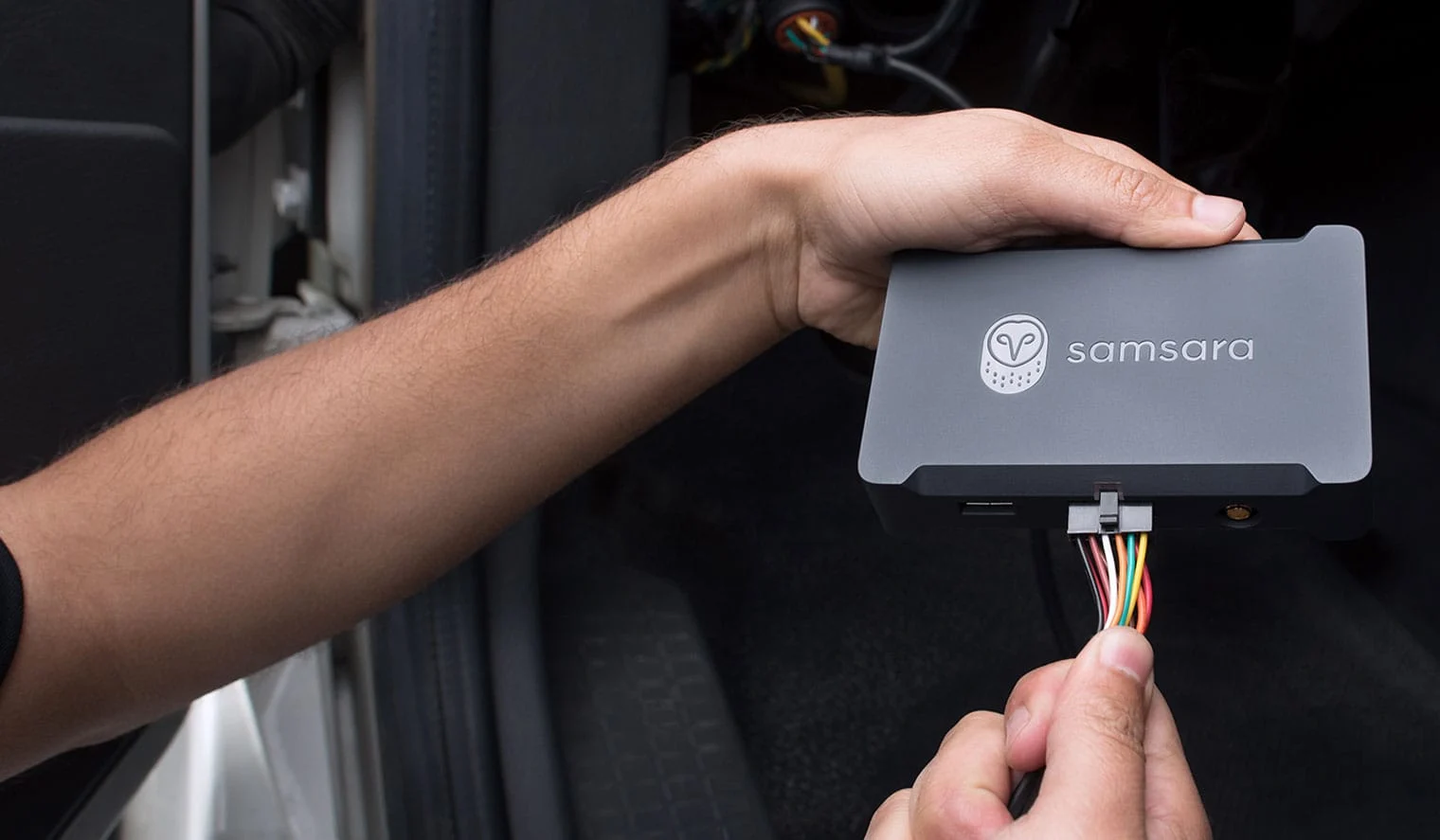Company News
2022 State of Connected Operations Report: Digitisation Improves Business Resilience
June 15, 2022

Manager, Content Marketing

Over the past decade, Internet of Things (IoT) technology has reached a critical inflection point. Cameras, sensors, and emerging technologies such as artificial intelligence (AI) have become more accessible and advanced. This has made it possible for organisations with physical operations to capture more data from more assets and connect it to the cloud. Today, we are seeing physical operations digitise and transform into connected operations: organisations with end-to-end visibility across their operations that are more efficient, sustainable, and safe.
This is why Samsara embarked on a journey to survey more than 1,500 operations leaders across eight countries in partnership with market research firm Lawless Research. Our goal was to uncover how this digital transformation is unfolding and reveal what today’s most successful organisations are doing differently. Today, we published our inaugural Samsara State of Connected Operations Report. Here’s what we found:
Business resilience and profitability hinge on digital transformation: 95% agreed that digitising their operations improves their ability to weather disruptions, and 91% reported that their investments in digital technology have increased net profit.
The most digitally mature organisations—what we call Connected Operations Leaders—outperform their peers: Compared to organisations in the early stages of digitisation, Connected Operations Leaders were nearly 2x more likely to exceed revenue goals.
The new industrial workforce demands modern tools and flexibility: Respondents reported that the most influential factors for recruiting and retaining employees are improving workplace safety (56%) and implementing easy-to-use technology (54%).
AI and automation bolster employee retention and satisfaction: 90% of respondents have implemented AI and automation technologies or plan to by 2023. Of those who have already implemented AI and automation, 95% reported it has increased employee retention.
Skyrocketing fuel prices and shifting expectations are driving investment in sustainability: 85% said increasing the sustainability of their operations is a high or critical priority this year. Nearly half (49%) have accelerated their transition to EVs in response to rising fuel costs.
Business resilience and profitability hinge on digital transformation
The supply chain model that operators trusted broke during the COVID-19 pandemic. The global economy’s most important industries have since faced historic levels of disruption. The 2022 Samsara State of Connected Operations Report reveals how digitisation is enabling organisations to assess and respond based on real-time data, increasing resilience and profitability.
89% of the operations leaders we surveyed agreed that disjointed technology and data negatively impact their bottom line, and 84% cited updating legacy tools as a high or critical priority for their organisation this year. Nearly all (95%) agreed that digitising their operations improves their ability to weather disruptions. Furthermore, the report reveals how digitisation is clearly linked to financial performance; 91% reported that their organisation’s investments in digital technology have increased net profit.
The impact of digitisation was even more pronounced for Connected Operations Leaders—those who reported the highest level of digital maturity across their operations. 99% of Connected Operations Leaders reported that their organisation’s investments in digital technology increased net profit. Compared to organisations in the beginning stages of digitisation, Connected Operations Leaders were 10x more likely to rate their operational resilience as very high, 3.6x more likely to report much higher revenue growth than competitors, and almost 2x more likely to exceed revenue goals.
Download the full report to learn more about how digitisation is helping organisations weather disruption, and see what Connected Operations Leaders are doing differently.
The new industrial workforce demands modern tools and flexibility
Though technology has modernised the employee experience in nearly every other industry, the people that keep our physical operations running—drivers, field technicians, safety managers, warehouse supervisors, and beyond—have historically been underserved by technology. The 2022 Samsara State of Connected Operations Report reveals how this is changing.
Today, the industrial workforce expects modern tools that improve safety, automate daily tasks, and are as easy to use as the technology they rely on in their personal lives. The Great Resignation and extremely tight labour markets have brought this further into focus by underscoring the need to recruit and retain employees. Respondents reported that the most influential factors for recruiting and retaining employees are improving workplace safety (56%) and implementing easy-to-use technology (54%).
The era of remote work has left a lasting imprint on physical operations. Almost all respondents (91%) currently offer technology that enables at least some of their employees to perform work remotely. For example, many now use real-time diagnostics to complete asset inspections remotely, which increases safety and saves time. Connected Operations Leaders quickly adapted to this shift and were 6.5x more likely to offer remote work technologies to all of their employees compared to respondents in the beginning stages of digitisation.
The report also reveals how applications of artificial intelligence (AI) and automation—such as AI cameras and automated workflows—have become vital for physical operations. 90% of respondents have implemented AI and automation technologies or plan to by 2023. These technologies are addressing the need for increased safety while empowering employees to spend less time on repetitive tasks. The vast majority (90%) of respondents said they expect these technologies to increase employee retention. Of those who have already implemented AI and automation, 95% reported it has increased employee retention.
Other top benefits of AI and automation include greater up skilling opportunities (43%), improved safety (42%), greater business agility (41%), and higher employee satisfaction (41%). More than half (51%) of Connected Operations Leaders reported higher employee satisfaction as a benefit of AI and automation, underscoring how these technologies are transforming the employee experience.
Download the full report to learn more about how technology is shaping the new industrial workforce.
Skyrocketing fuel prices and shifting expectations are driving investment in sustainability
Soaring fuel prices have shaken global industrial operations. Combined with increased regulatory activity, shifting customer and investor expectations, and the growing availability of commercial electric vehicles (EVs), this is driving an increased focus on sustainability for physical operations. The 2022 Samsara State of Connected Operations Report reveals why sustainability is now critical to business success, and how investments in sustainability are paying off.
85% said increasing the sustainability of their operations is a high or critical priority for their organisation this year, and 65% expect to increase their investment in sustainability in 2022. Technology is playing a key role; 88% said investing in technology that supports more sustainable operations is a high or critical priority this year. Furthermore, while the adoption of commercial EVs was already on the rise, Samsara found that nearly half (49%) have accelerated their transition to EVs in response to rising fuel costs.
99% have already implemented or plan to implement a formal sustainability program. For organisations that already have a sustainability program in place, the top-reported benefits are increased access to business opportunities (57%) and higher employee satisfaction (57%). 42% reported revenue gains as a result of their sustainability program.
Read the full report to learn more about how today’s operations leaders are thinking about sustainability, including top reasons for investing in sustainability and the most common priorities.
Read the full report to discover what sets today’s leaders apart
Of the 1,500+ operations leaders Samsara surveyed, only 7% reported the highest level of digital maturity—indicating that the digital transformation of physical operations is in its early innings. Download the report to discover what makes these elite organisations better equipped to thrive in 2022 and beyond.


















